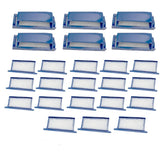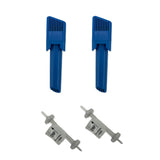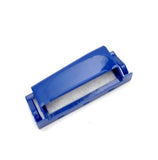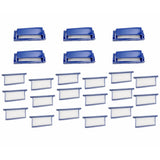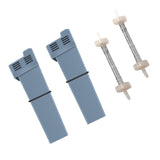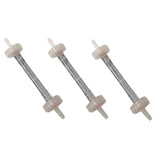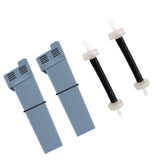Tech Tips
Tech Tips
Best CPAP Filters?
Best CPAP Filters?
There are several types of CPAP filters available on the market, and the best one for you will depend on your specific needs and preferences. Some factors to consider when choosing a CPAP filter include the type of machine you are using, the level of air pollution in your environment, and any allergies or sensitivities you may have. Here are some popular options to consider:
-
Disposable fine filters: These filters are made of a synthetic material and are designed to capture small particles, such as dust and pollen. They should be replaced every 30 days or as needed.
-
Disposable ultrafine filters: These filters are similar to fine filters, but they are finer and more effective at capturing smaller particles. They should also be replaced every 30 days or as needed.
-
Reusable foam filters: These filters are made of foam and can be washed and reused. They are effective at capturing larger particles, such as pet dander and mold spores.
-
Hybrid filters: These filters combine a disposable fine filter with a reusable foam filter, offering the benefits of both types of filters.
Ultimately, the best CPAP filter for you will depend on your specific needs and preferences. It is important to follow the manufacturer's recommendations for filter replacement and to keep your filters clean to ensure optimal performance of your CPAP machine.
There are several types of CPAP filters available on the market, and the best one for you will depend on your specific needs and preferences. Some factors to consider when choosing a CPAP filter include the type of machine you are using, the level of air pollution in your environment, and any allergies or sensitivities you may have. Here are some popular options to consider:
-
Disposable fine filters: These filters are made of a synthetic material and are designed to capture small particles, such as dust and pollen. They should be replaced every 30 days or as needed.
-
Disposable ultrafine filters: These filters are similar to fine filters, but they are finer and more effective at capturing smaller particles. They should also be replaced every 30 days or as needed.
-
Reusable foam filters: These filters are made of foam and can be washed and reused. They are effective at capturing larger particles, such as pet dander and mold spores.
-
Hybrid filters: These filters combine a disposable fine filter with a reusable foam filter, offering the benefits of both types of filters.
Ultimately, the best CPAP filter for you will depend on your specific needs and preferences. It is important to follow the manufacturer's recommendations for filter replacement and to keep your filters clean to ensure optimal performance of your CPAP machine.

